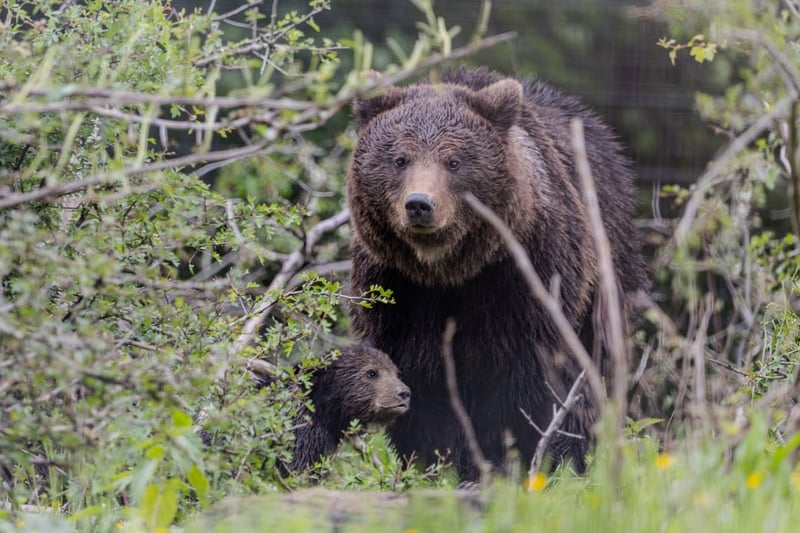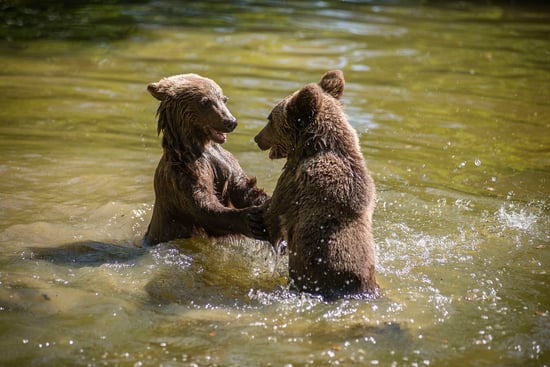
Planning for your future: Myths and questions about estate and financial planning
Blog
Financial planner Tim Plater debunks common myths about legacy giving and explains how thoughtful planning today can help protect animals for generations to come.
By Tim Plater, Plater Financial Inc.
You don’t have to be wealthy or retired to make a lasting difference.
As someone who’s helped Canadians plan for their futures since 1986, I’ve seen how a few thoughtful decisions today can make an extraordinary impact—for your loved ones, your peace of mind, and the causes that mean the most to you.
With the right plan in place, you can help build a kinder world for animals—one where they thrive for generations to come.
Below, I’ve answered some of the most common myths and questions about estate and legacy giving.
Myth 1: “I’m not old enough or wealthy enough to need an estate plan.”
Estate planning is for everyone, regardless of age or income.
Having a Will ensures your wishes are honoured and your loved ones are cared for—no matter the size of your estate.
Any size gift can help the world change its relationship with animals, moving away from exploitation towards a compassionate future.
Myth 2: “Leaving a gift in my Will means my loved ones won’t be taken care of.”
Great news! You can take care of your loved ones and support the causes that matter most to you.
You have a few options when deciding what type of gift to leave a charity in your Will:
- A cash gift: you determine the exact amount you want to give.
- A contingent gift: a share of your estate to be distributed after your other beneficiaries have passed on.
- A residual gift: the most common, represents just a portion of your estate (decided by you) —after family and dependents are provided for.
Many World Animal Guardians find comfort knowing their legacy will continue to protect animals far into the future.
Myth 3: “If I leave a charitable gift, it will reduce what I need to live on now or in retirement.”
A gift in your Will, or bequest, only takes effect after your lifetime, so your current finances and retirement plans will remain completely secure.
If you’d like to make a difference now, some options allow you to give non-cash gifts with valuable tax benefits.
Question: What are my options if I want to give a non-cash gift now?
You would have a few options depending on your situation. Many people choose to donate:
These gifts often have benefits for both you and the animals you help protect.
Question: Will my debt be passed on to my family?
In most cases, debts are paid from your estate before any remaining assets are distributed.
Your family members generally aren’t responsible for personal debts.
Having a Will and keeping up to date ensures your estate is settled smoothly and according to your wishes.
Question: What’s the most efficient way to maximize both my charitable gift and tax benefits?
With professional advice, you can structure your gift to make the biggest impact. Many donors:
- Name World Animal Protection as a beneficiary of their RRSP, RRIF, or TFSA
- Leave a percentage of their estate or a fixed amount
- Donate stocks and mutual funds that have increased in value, directly to avoid capital gains tax
These approaches help you protect animals while reducing taxes for you, your estate and loved ones.
Together, we can create a kinder world for animals
Planning ahead is one of the most meaningful ways to make a difference—for the people and causes you care about most.
Your estate plan is more than finances; it’s a reflection of your values, compassion, and the legacy you wish to leave behind.
By including a gift to World Animal Protection in your Will or financial plans, you can help ensure that your love for animals continues to make an impact for generations to come.
Banner photo: Mother bear, Alpina, and her two cubs, Elaine and David, at Libearty Bear Sanctuary. (Credit: AMP)
